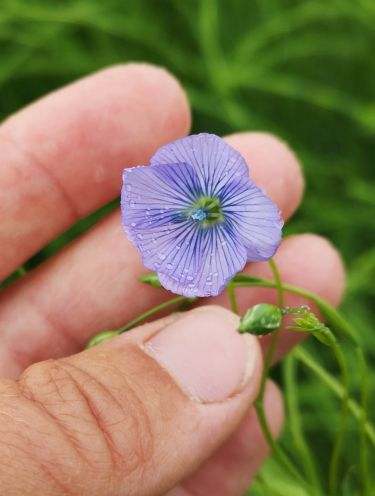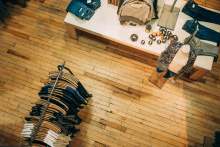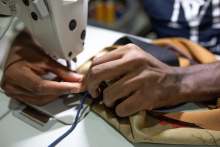The term ‘Fibershed’ was first coined by Rebecca Burgess in 2011 to describe the geographical area within 150 miles of her home in California from which she sourced fibres, dyes and labour to create a wardrobe of clothes. The Fibershed Affiliate Programme has now spawned a global grass roots network that includes four registered affiliates in the UK.
Each Fibershed decides its own priorities and focus but common to all is a membership directory of farmers, designers, weavers, makers, mill owners, natural dyers and fashion activists aligned to the Fibershed values of a ‘local and fair economy and ecological balance.’
Beyond sustainability
At the heart of the Fibershed movement is a commitment to creating a textile and clothing culture that enhances soil health and biodiversity through regenerative farming practices grounded in the concept of soil-to-soil systems and right livelihood for every person involved from farming to finished garment.
Garments produced from natural fibres (material derived from plants and animals), grown and processed regionally without chemicals or artificial inputs and dyed with botanical colour can be returned to the earth at the end of their useful life. They will in turn build soil health as part of a regenerative ecosystem to grow the next generation of fibres.
This approach is rooted in indigenous traditions. By adopting these practices in tandem with the best of 21st century technology such as renewable energy and fair pay, we have the potential to create zero-carbon clothing and revitalise the rural economy.







